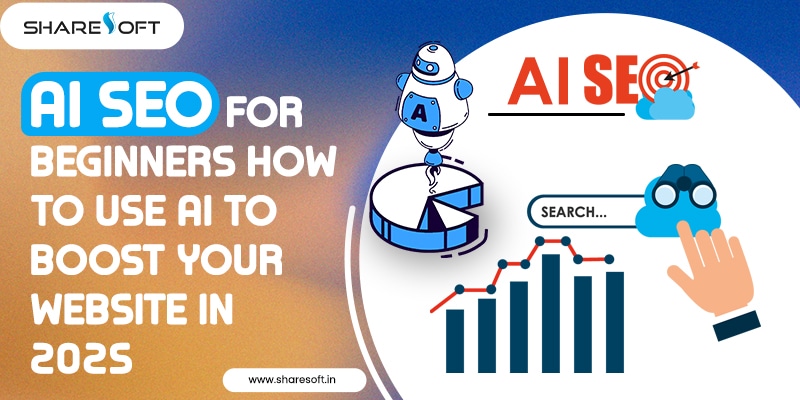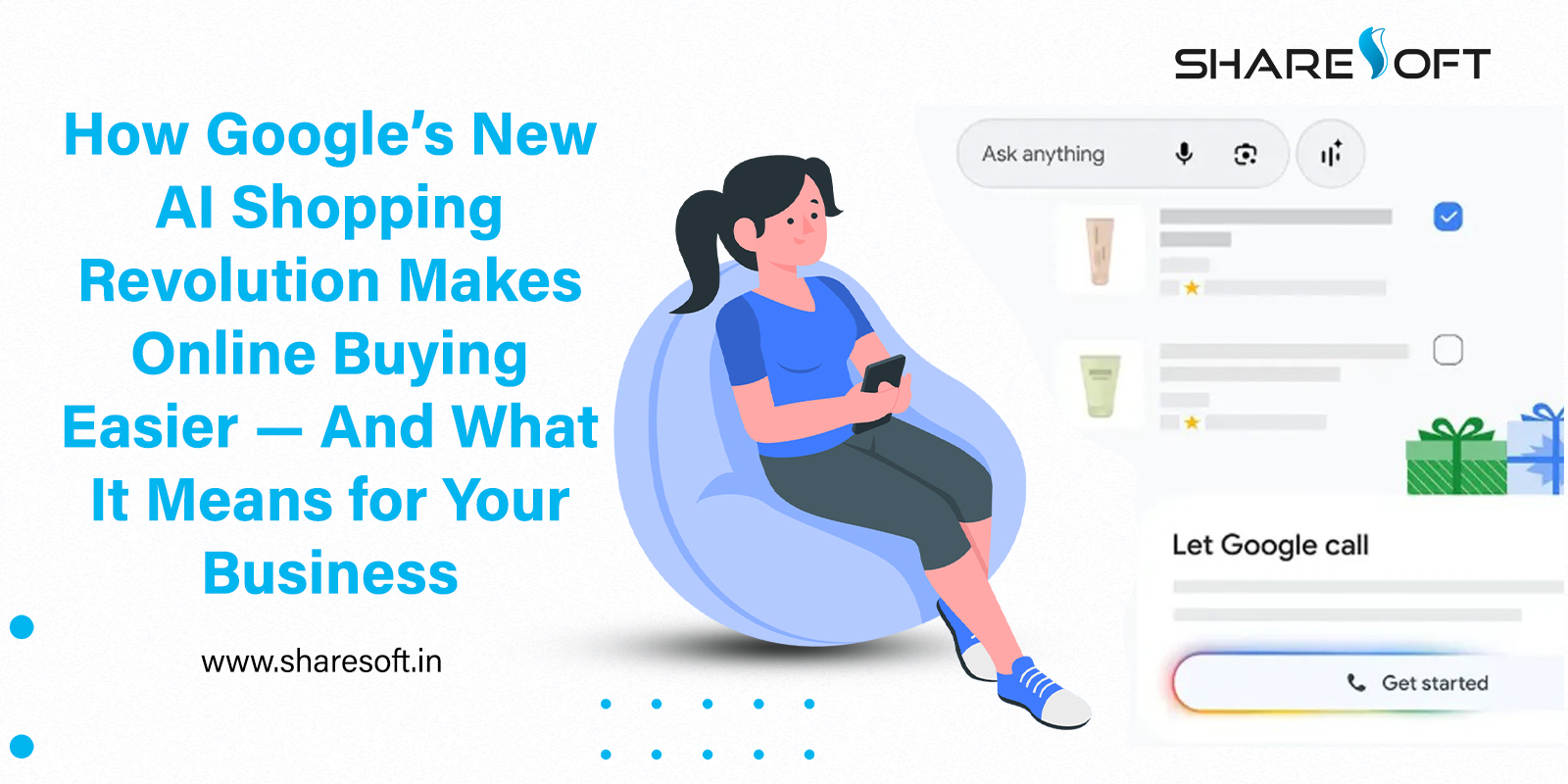
Latest Blog
In today’s digital world, just having a website is not enough. You need people to find it easily when they search on Google or ask AI tools like ChatGPT for help. That’s where SEO (Search Engine Optimization) comes in.
But SEO is changing fast.
In 2025, more people are using AI-powered search tools that give direct answers—without clicking on a link. That means your website needs to be optimized not just for search engines, but also for AI.
In this guide, we’ll walk you through AI SEO, explain what it is in simple terms, and show you how to use it—even if you’re just starting out. You’ll also learn about important terms like LLM SEO, Answer Engine Optimization (AEO), and Generative Engine Optimization (GEO).
Let’s get started!
What is AI SEO?
AI SEO means using artificial intelligence to improve your website’s chances of appearing in search results—especially in AI-generated answers.
Here’s a simple way to think of it:
“AI SEO is how you teach smart tools (like ChatGPT or Google AI) to understand your content, trust it, and show it to others.”
In the past, SEO was mostly about keywords, backlinks, and on-page content. Now, it’s also about writing in a way that AI understands.
Why Is AI SEO Important in 2025?
Here are a few reasons:
- More people are using AI to search – instead of just using Google, people now ask questions to ChatGPT, Gemini, or Microsoft Copilot.
- Search engines are changing – Google is now showing “AI overviews” that answer questions right on the page.
- Zero-click searches are rising – Many users get what they need without visiting a site. You want to be the source those answers are based on.
If your site isn’t optimized for AI, you risk losing traffic—even if your content is good.
Basic SEO vs. AI SEO – What’s the Difference?
| Traditional SEO | AI SEO (2025+) |
| Focuses on keywords & backlinks | Focuses on meaning & user intent |
| Optimizes for Google’s algorithm | Optimizes for AI tools like ChatGPT |
| Aims for clicks | Aims to be referenced or cited |
| Based on SERPs (search pages) | Based on answers & summaries |
Key AI SEO Terms Explained (Simple Definitions)
Let’s break down some terms you might see in articles:
- LLM SEO: LLM stands for “Large Language Models.” LLM SEO means writing in a way that AI tools like ChatGPT can understand and use.
- AEO (Answer Engine Optimization): Creating content that gives clear, helpful answers—so AI and voice assistants pick it up.
- GEO (Generative Engine Optimization): Making sure your site is mentioned or referenced by AI tools that generate responses.
- AIO (Artificial Intelligence Optimization): A broader approach that includes all the steps to make your content AI-ready.
Don’t worry if this sounds technical—we’ll make it simple below.
Step-by-Step: How to Do AI SEO (Even If You’re New)
Let’s go through a beginner-friendly plan to use AI SEO on your site.
Step 1: Start with the Right Keywords
Think about what your audience is searching for. People today use full questions like:
- “How do I improve my SEO using AI?”
- “Best free AI tools for SEO beginners”
- “What is AI SEO?”
These are long-tail keywords and they’re perfect for AI SEO. You can use tools like:
- Google Search Suggestions
- AnswerThePublic.com
- Ubersuggest
- ChatGPT (Ask: “What are beginners searching for in AI SEO?”)
Tip: Choose 1 main keyword + 2–3 related keywords per blog post.
Step 2: Write Content That Sounds Human
When writing your blog or website content:
- Use short sentences
- Keep your language clear and simple
- Break information into small paragraphs
- Use headings (H2, H3) and bullet points
Example of a friendly tone:
“AI tools may sound fancy, but they’re just helpers. Think of them like smart assistants that guide people to your content.”
AI tools prefer content that explains clearly and mimics natural speech. If it sounds like a conversation, you’re doing it right!
Step 3: Add Questions and Answers (AEO)
Include a FAQ section in every article. This is great for Answer Engine Optimization (AEO). AI platforms LOVE this format.
Example:
Q: What is AI SEO?
A: AI SEO means using artificial intelligence to help improve your content so it ranks better and appears in AI-generated answers.
Q: Can beginners use AI SEO?
A: Yes! Many tools are free and beginner-friendly. With simple steps, anyone can start using AI to improve SEO.
Step 4: Add Schema Markup (Even Basic One)
This sounds complex, but it’s not. Schema is a special code that helps Google and AI understand your content better.
If you’re using WordPress, you can install plugins like:
- Yoast SEO
- All in One SEO
- RankMath
They automatically add schema to your site. You can also use Google’s Schema Markup Generator.
Step 5: Optimize for Voice Search & Mobile
AI tools and voice assistants (like Alexa or Siri) prefer:
- Clear answers
- Mobile-friendly layout
- Fast page speed
Make sure your site:
- Loads in under 3 seconds
- Uses large, readable fonts
- Has simple menus and layouts
Test your site using: https://pagespeed.web.dev/
Tools That Help Beginners With AI SEO
Here are some free or beginner tools to start with:
| Tool Name | Use Case |
| ChatGPT | Brainstorm ideas, write content, suggest FAQs |
| Ubersuggest | Find long-tail keywords |
| AnswerThePublic | See what people ask |
| RankMath | Add meta tags and schema to WordPress |
| Google Trends | Spot trending keywords |
| Screaming Frog | Check for technical SEO issues (free up to 500 pages) |
7 Common Mistakes to Avoid in AI SEO
- Keyword Stuffing – Don’t overuse keywords. Make your writing natural.
- Writing for AI, not Humans – Always write for people first.
- No Schema – Use schema to give AI structure.
- Long, unstructured text – Break up text with headings and bullets.
- Ignoring FAQs – Add Q&A sections to every post.
- No meta titles or descriptions – These still matter in both SEO and AI summaries.
- Copy-pasting AI content without editing – Always review and personalize.
Quick AI SEO Checklist (Save This!)
✅ Use long-tail keywords (what people ask)
✅ Write clearly and conversationally
✅ Add FAQs and answers
✅ Use schema markup (FAQ, Article, etc.)
✅ Optimize for mobile and voice search
✅ Refresh old content regularly
✅ Add proper meta tags (titles, descriptions)
✅ Test your site’s speed and structure
Final Thoughts: AI SEO Is Not Hard
You don’t need to be a tech expert to use AI SEO. The key is:
- Write helpful, clear, and well-structured content
- Think about what your audience wants
- Use free tools to guide your writing and keyword choices
As AI search grows, your content can still be found—if you take the time to follow simple steps. AI SEO isn’t just for big companies anymore. Beginners can win too!
Ready to Get Started?
Pick one blog or page on your site and apply what you learned today. Try this:
- Find 1–2 beginner-friendly keywords
- Rewrite the page in simple, clear language
- Add 2 FAQ questions with short answers
- Use a plugin or tool to add schema
- Share it on social media and monitor your traffic
Need help with tools or SEO setup? Contact ShareSoft Technology for beginner-friendly SEO and AI support tailored to your goals.








